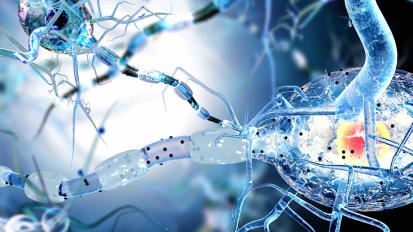Christopher Ross, MD, PhD

In their study of neuropsychiatric disorders, Dr. Ross and his research team have focused on Huntington's disease and Parkinson's disease, and now are using insights from these disorders to approach more complex diseases such as schizophrenia and bipolar disorder. They use biophysical and biochemical techniques, cell models, and transgenic mouse models to understand disease processes, and to provide targets for development of rational therapeutics. These then can provide a basis for developing small molecule interventions, which can be used both as probes to study biology, and if they have favorable drug-like properties, for potential therapeutic development. We have used two strategies for identifying lead compounds. The first is the traditional path of identification of specific molecular targets, such as enzymes like the LRRK2 kinase of Parkinson’s disease. Once structure is known, computational approaches or fragment based lead discovery, in collaboration, can be used. The second is to conduct phenotypic screens using cell models, or in a collaboration, natural products in a yeast model. Once a lead compound is identified, we use cell models for initial tests of compounds, then generate analogs, and take compounds that look promising to preclinical therapeutic studies in animal models. The ultimate goal is to develop therapeutic strategies that can be brought to human clinical trials, and we have pioneered in developing biomarkers and genetic testing for developing strategies.


